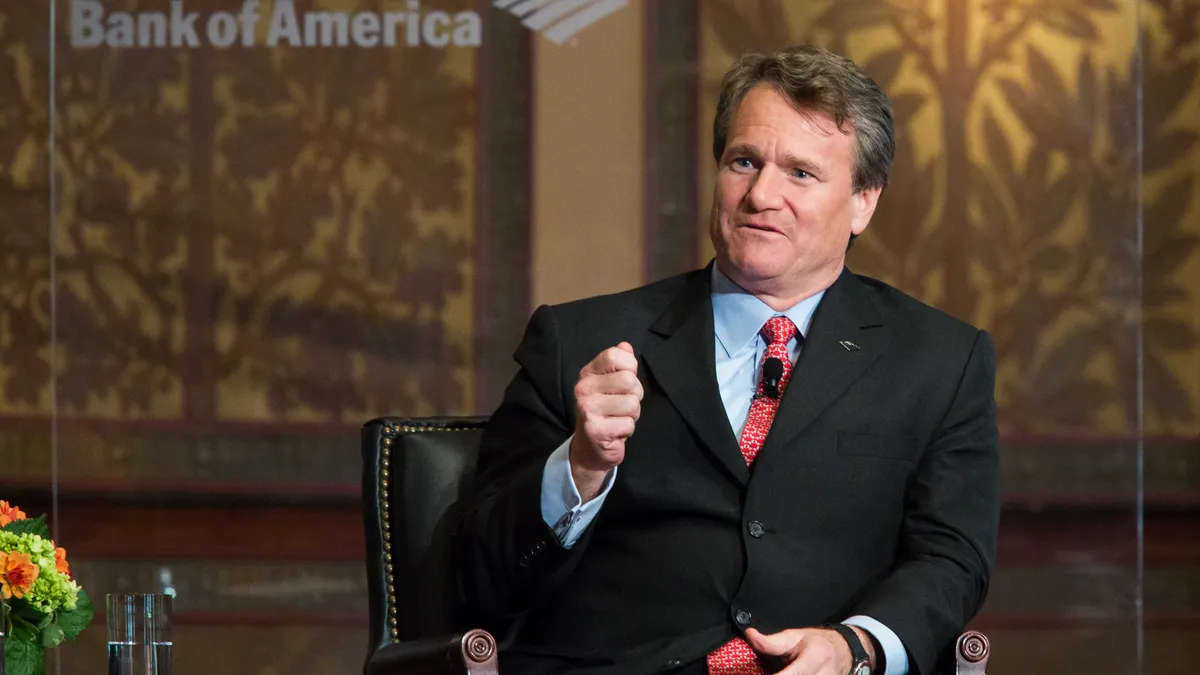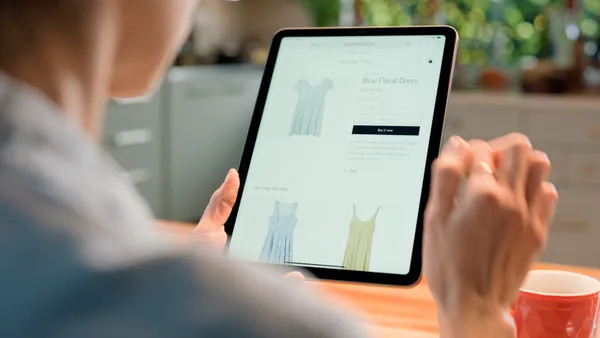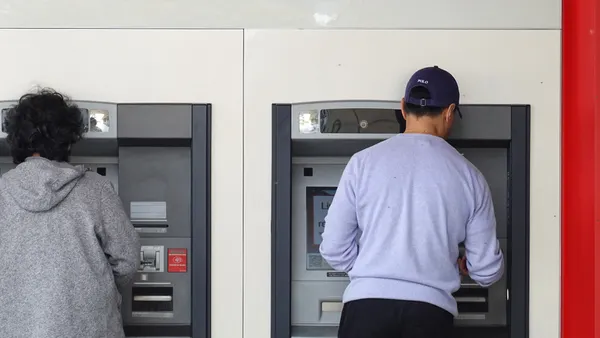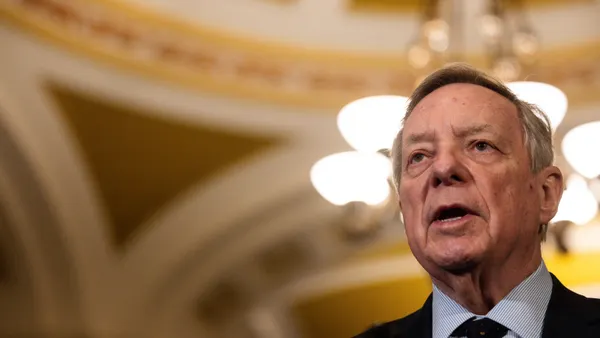Dive Brief:
- Bank of America next year will begin offering loans of up to $500 for a flat $5 fee to customers who have had checking accounts with the bank for more than a year, the Charlotte, North Carolina-based lender said Thursday.
- The advance, which the bank calls Balance Assist, will be available in increments of $100, and can be paid back in three equal installments over 90 days.
- The announcement comes more than four months after the Federal Reserve, Federal Deposit Insurance Corp. (FDIC), Office of the Comptroller of the Currency (OCC) and National Credit Union Administration (NCUA) issued principles meant to encourage more banks to issue small-dollar loans, perhaps to help consumers struggling during the coronavirus pandemic.
Dive Insight:
Balance Assist is slated to roll out in select states in January, then expand nationwide in early 2021.
Prior to Bank of America’s announcement, the largest banks to offer small-dollar loans were U.S. Bank and KeyBank. Big banks such as Wells Fargo offered "direct deposit advances" until the middle part of the last decade, but such products came under scrutiny for their resemblance to payday loans.
Now consumer advocates — and regulators — are looking for banks to fill the small-dollar lending space to provide an alternative to high-interest payday loans.
"Customers have told us they have that need for liquidity," Kevin Condon, senior vice president for consumer-deposit and small-business products at Bank of America, told Bloomberg. "We want them to stay within mainstream banking to do that."
In their May guidance, regulators advised that small-dollar loans should be structured so that a borrower can repay in a "reasonable time frame rather than reborrowing, rollovers, or immediate collectability in the event of default."
To that end, Bank of America will let customers take only one Balance Assist loan out at a time. Borrowers' repayment behavior will be reported to credit bureaus. And the bank will use data it gathers from customers' checking accounts along with outside credit information to determine eligibility, Condon said.
Despite the green light from regulators, banks have been cautious in launching small-dollar products. Practitioners cite the potential for regulatory changes following the upcoming election, along with questions around how banks can offer these products profitably.
"Even with encouragement and guidance from regulators, banks still have to find a way to make the economics work," Doug Farry, co-founder of Employee Loan Solutions, told American Banker in July.
Fintechs such as Square have also added competitive pressure, testing small-dollar loans offered through its peer-to-peer Cash App.
U.S. Bank, however, has been offering small-dollar loans for two years. Customers can borrow up to $1,000 in $100 increments through a Simple Loan. Clients have three months to pay it back, and for every $100 borrowed, they're charged $12 for automatic payments, or $15 if they make manual payments. So, if a customer borrows $400 and selects automatic payments, he or she will pay back $448 in three monthly payments of approximately $149.33 each, which amounts to an annual percentage rate (APR) of 70.65%.
U.S. Bank limits monthly payments to 5% of a consumer's income. Product users must be U.S. Bank customers, and they're assessed based on cash flow, income and credit profile details. U.S. Bank said it can offer these loans profitably because of low overhead cost and lower risk associated with offering the product to existing customers.
Jennifer Tescher, CEO of the Financial Health Network, told The Charlotte Observer she is encouraged another major bank “has developed an alternative to overdraft and payday loans that is safe, transparent, and affordable, with the real potential to advance financial health.”
For Bank of America, Balance Assist may be a continuation of efforts — such as SafeBalance, which launched in 2014 and eliminated users’ overdraft fees — to offer a hand up to consumers who count on small dollars.
"This is part of the journey that we've been on for quite some time," Steve Boland, Bank of America's retail head, told Bloomberg.













